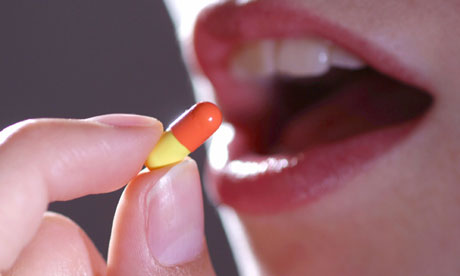
According to NHS Choices, about half of women are estimated to have sexual problems. The most common is difficulty in getting aroused – and it's the one pharmaceutical companies are most interested in. Recent reports suggest that Lybrido and a related drug Lybridos could be available on prescription by 2015. Small, well-designed trials published earlier this year in the Journal of Sexual Medicine show these drugs did better than placebos in increasing sexual desire and satisfaction.
Lybrido contains testosterone, to increase the brain's receptiveness to sexual cues and improve sexual responsiveness. But it also contains a phosphodiesterase type 5 inhibitor. This, like Viagra, to which these drugs are related, acts by increasing blood flow to the genitals, to heighten sensation and desire.
These pills (they vary in ingredients to deal with slightly different arousal problems) are the brainchild of a company called Emotional Brain in the Netherlands. The FDA has now approved the next stage of trials in America. So, can you relax and wait for a couple of years, or do you need to stoke up your desire before then?
The solution?
There is a view that we don't need a prescription for lack of desire, because it's not an illness. However doctors have helpfully made it one – hypoactive sexual desire disorder. A debate article 10 years ago in the BMJ warned that even the broader term of female sexual dysfunction was made up for the benefit of drug companies.
Since women's loss of desire often coincides with having children, with interpersonal problems, the menopause, pressures at work and feeling less attractive than most women in the media, there would seem to be enough social reasons without medical ones.
Whatever the causes may be, there is some evidence that women would like to feel more desire and most existing therapies require some work. These address any depression or negative self-image, discuss how to use stimuli (visual or sex toys) for sexual arousal and use education and cognitive therapy as well as helpful tips about how to relax and stop watching how you're doing (spectatoring).
The BMJ's Best Practice section on sexual dysfunction states that it is a myth that the "absence of desire preceding sexual activity denotes sexual dysfunction". So hurrah for that. There are herbal remedies, but little evidence that they work – so don't use them.
Other medications in trials include Femprox, a prostaglandin-based cream that increases blood flow to the genitals (though there are already ways to do that). The Daily Mail expressed concerns that Lybrido could create nymphomaniacs. There will doubtless soon be a pill to treat that as well.

